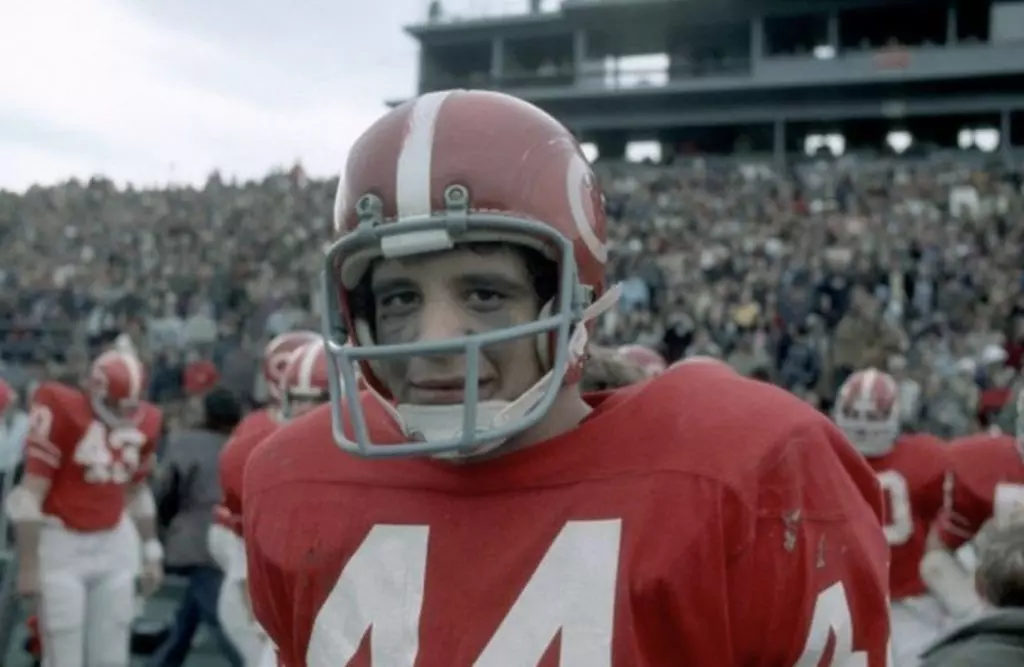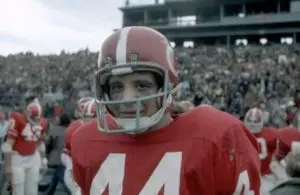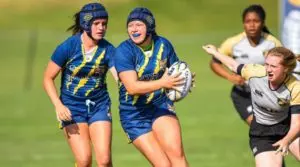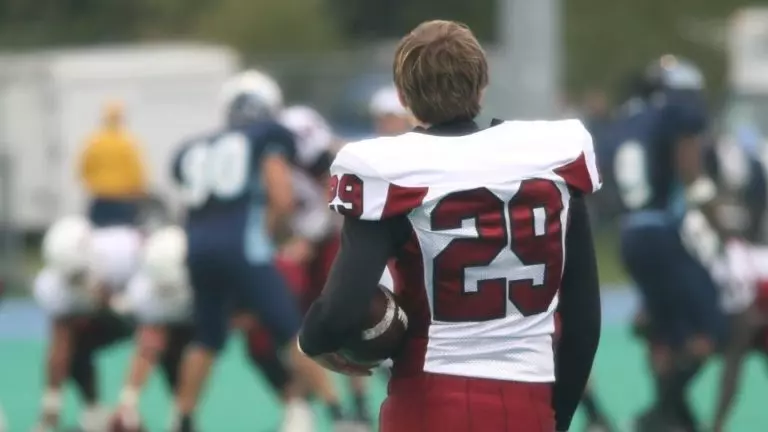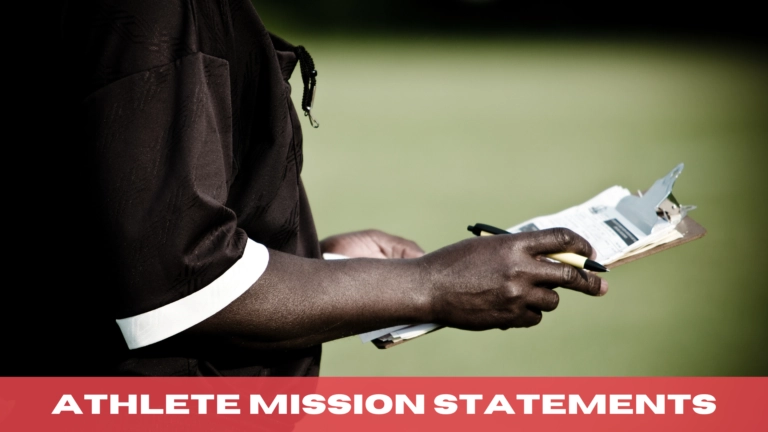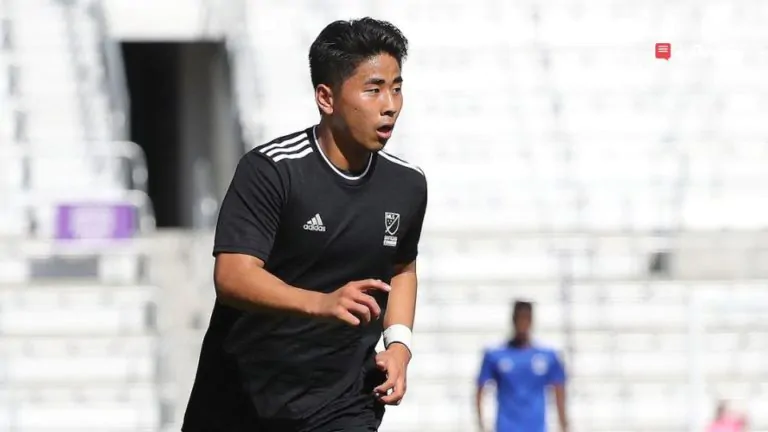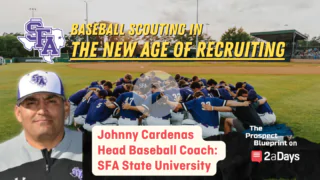Ed Marinaro is arguably the greatest football player in Ivy League history. Marinaro played college football at Cornell University, where he set over 16 NCAA records. He was the first running back in NCAA history to run for 4,000 career rushing yards and led the nation in rushing in 1971. He went on to finish in second place for the 1971 Heisman Trophy.
After six years in the NFL that included two Super Bowl appearances with the Minnesota Vikings, Marinaro turned to acting. He starred in the popular show Hill Street Blues. Despite having one of the most decorated collegiate football careers ever and numerous other accolades, he is most famous among Millenials and Gen Z for playing Coach Marty Daniels on Blue Mountain State. BMS gave fans three seasons and a movie of raunchy humor with a little bit of football mixed in. As one of my favorite shows of all time, BMS is a decade-defining show of the 2010s. Marinaro took the time to share his experience as an athlete, offer advice to the next generation of college stars and share a few stories along the way.
2aDays: Being that you were a highly recruited football and basketball athlete, why did you choose football? Would you recommend that dual high school athletes try to pursue their two sports in college?
It's very demanding to play two sports in college. Most people who do that take the winter off as long as you maintain your academics. I don't think I could have done that. Cornell was pretty demanding. It's a good thing to rest your body– even in college. You need to take some time and let your body regenerate. My son is 17 and plays football, basketball, and lacrosse. Playing three sports makes it hard for him to put on weight because he's constantly burning calories. At some point, an athlete needs to take time off and focus on one sport.
2aDays: Last time we spoke, we talked about you choosing Cornell over Penn State. How did the Ivy League Football experience compare to a bigger school like Penn State? As far as football is concerned.
In my day, the Ivy League was more of a true Division I school. I always say that the difference between the Ivies and other schools is the depth. At Cornell, there's a significant drop off if we get someone injured. We only have so many skill position guys. If we lose a running back or quarterback, it's not likely that someone will be able to step in and produce the same way a backup can at a bigger school. I have no regrets. My experience at Cornell was wonderful. I have teammates I still keep in touch with. Of course, it helps when you're a winning team. We were Co-Ivy League Champions during my senior year. Winning unites you forever. The Ivy League was just as competitive. I played against tons of great players who could have played at plenty of other schools.
2aDays: What is the best piece of advice that you can offer to high school athletes who are looking to play at the college level?
I'm dealing with this now with my son. Stay focused on the here and now. Don't get ahead of yourself. Take care of business. Work hard. Don't freak about signing with a school early so that you can relax. I tell my son to wait until the last possible minute to sign. Work hard now, and the rest will fall into place. People's priorities tend to get whacked out. Everyone wants to commit to someplace. I don't want him to commit. I want him to enjoy his career. Don't look ahead because before you know it, high school will be over.
2aDays: What are the three main characteristics that a high school athlete needs to have in order to be a great college football player?
You have to focus on being a good student. When you say you're playing football in college, the keyword is “college.” You're going there to get an education. Of course, you're playing football at the same time, but education needs to be the primary focus. Football can be gone in a second.
The step from high school to college is big. You're getting the best of the best. You have to be ready to up your game. A lot of people don't have that extra gear, so they don't make it. Work hard. I tell people to do two things: hit the weights and do speed drills. If you want to get recruited, run a 4.5 forty.
There's racing speed and football speed. It's like people who are smart but don't test well. Natural speed, catching a football and running down the sideline in full pads, is way more important than a 40-yard dash. However, people love the forty because it's a way to quantify speed.
2aDays: How do you feel about the recent NCAA ruling that allows college athletes to profit off of their name and likeness?
As you may have guessed, I'm a bit of a purist. It can be a slippery slope. Players are essentially getting a free education. People are sending their kids to a decent college at the price of $50,000 a year. When you get a football scholarship, you're essentially making $200,000 over four years. Paying players can get corrupt. When people are in it for the money, the game loses its purity. Paying kids opens up a whole can of worms. Obviously, some changes need to be made, but it needs to be monitored.
2aDays: What is the best piece of advice that a coach has given you, and who was that coach?
My college coach, Jack Musick, was a good man who wasn't afraid to tell me that I was good. A lot of coaches try to be tougher on the best kids. That was my story up until college. Jack Musick encouraged and complimented me. I would run through a wall for him. The best advice he gave me was, “I believe you're good, and you can be as good as you want to be.” That really drove me.
2aDays: What makes a great football leader on the field?
A great leader on the field is a combination of example and words. A great leader knows when to encourage someone and when to get on someone. More importantly, people will watch the way he responds to situations. When things aren't going well, he doesn't change. That's the kind of player that can become a coach. I played for Bud Grant on the Minnesota Vikings. He was very unemotional. You didn't know if you were winning by three touchdowns or losing by three touchdowns. He was very even-keeled. A team will take on the personality of its coach. When the coach is out of control, personal fouls and undisciplined players tend to follow. A great leader adjusts to whom they're trying to lead. You can't lead everyone the same way. You have to be able to reach every kind of individual so that you understand their strengths, weaknesses, and personalities. Great coaches do that.
2aDays: Playing in the Super Bowl is a tremendous accomplishment in itself. Can you describe what it took for you and the Minnesota Vikings to bounce back from a heartbreaking loss? What advice can you give to an athlete who has a moment like that? How can they refocus their efforts and move on?
The magnitude of the game has evolved into this worldwide spectacle. I played in Super Bowls 8 and 9. Now we're at 54. Great athletes have short memories. We played in two Super Bowls and lost both of them. The fact that we lost one year and made it back the next year is a credit to the positive approach we took to that second season. Great athletes don't dwell on the past because it doesn't help. That's what I tell my son. Great athletes will have bad days. They won't have a lot of bad days, but they will have some. You can learn from losses, but you still have to move on.
2aDays: Would you say that your football career had a career-defining play or moment?
I wouldn't say one particular play. But when I was a freshman, we ran a very conventional offense with a split backfield. Running backs were in three-point stances and lined up five yards behind the line of scrimmage. You'd get the ball and hope a hole opened up. Going into my sophomore year, the coaching staff put in a whole new offense to suit my skill set. We went to the I-Formation. I'd line up seven yards in the backfield. We could run off tackle, inside, sweeps, counters, and pitch options. The back's job was to find the hole. It suited my style of running. There wasn't a system that could have better highlighted what I did best. I would never have gained the yards I did. I would have never had the career I had without that. I was very fortunate.
How did you get your start in Hollywood?
I spent an offseason in Los Angeles during my football career. Joe Namath has always been a good friend of mine and still is. In 1975, I'd just finished my last year in Minnesota. I just signed with the New York Jets. That summer in Los Angeles, I got discovered by a Hollywood agent. When I went back to New York, I got a call asking if I'd like to do a screen test to replace Lee Majors on The Six Million Dollar Man. I'd never acted before, but they flew me out to Hollywood to read for the role. I didn't get it, but I still decided to move out to LA and enter an acting workshop. I studied acting for a few months, then I went back to New York for the season and entered an acting workshop there. I put my acting career on the back burner after I got hurt. When I finally retired after six years in the NFL, I tried acting full time. Now it's been 45 years. I've never had job security in my life. I've probably been unemployed more than I've been employed.
2aDays: Was there a favorite scene you had with the show?
It was so much fun doing that show that I can't pick just one. Working with Alan Ritchman, who played Thad Castle, was always hilarious. Denise Richards was a blast to work with. It was a great gig. It's the gift that keeps giving. Netflix introduced the show to a whole new generation of kids my son's age. There are guys in their 30's and 16-year-old boys who love this show.
2aDays: What players in today's game, college, or the NFL, do you love to watch?
I love watching Dalvin Cook. I saw him live when I went to Vikings' alumni weekend. He's special. Lamar Jackson is so fast. He's taking the league by storm. I hope he stays healthy because, in this league, one big hit can hurt you. Patrick Mahomes is fun to watch too.
2aDays: Are there any exciting new projects you're working on?
I have a small but fun role in a prequel to the Sopranos. It's called The Many Saints of Newark, and I believe it comes out in September of 2020. When not working as an actor, I work as a public speaker, telling my life story at corporate functions and conventions. I'm not necessarily a motivational speaker. I just tell my story and let audiences take what they can from my own experiences to apply in their own lives.
1 “Ed Marinaro.” Wikipedia. Wikimedia Foundation, March 14, 2020. https://en.wikipedia.org/wiki/Ed_Marinaro.
* Originally published on May 21, 2020, by Raphael Chierchio
